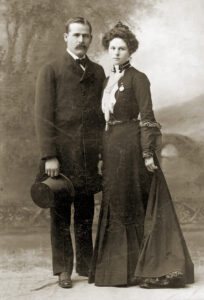Death Zones and Darling Spies
by Beverly Deepe Keever, University of Nebraska Press, 2013
The Vietnam conflict established women war correspondents as the equals of their male colleagues, and Beverly Deepe Keever set the bar high for her sisters who would follow her into the bloody jungles and paddies of Vietnam. Between 1965 and 1973, the U.S. command would accredit 462 women, 267 of them Americans. Two were killed reporting the war. Keever was well prepared to land in Saigon in 1962 and start freelancing for the first seven months. At 26 she held a master’s degree in journalism from Columbia University. She soon changed the attitude of old hands who resented women as war correspondents, and helped create a respectful attitude toward women reporters from young male reporters like myself, newly assuming the mantle of war correspondent.
Now 44 years after leaving Vietnam, Keever has written a memoir and perspective on her experiences, Death Zones and Darling Spies. It was worth waiting for. She saved every note and document from her seven years in-country, and they provide colorful and accurate recollections of her work.
From her earliest days she established solid Vietnamese sources. For a cash-strapped freelancer, Keever took a big financial risk hiring two Vietnamese journalists as part-time translators and fixers, but the advantages to her command of the news scene were enormous. She spent much of her time in the field with U.S. and ARVN combat forces. When she got wind of an important battle looming at Ap Bac, rather than wait to hitch a helicopter ride, she took a commercial taxi to the staging area of the South Vietnamese 7th Division. The gamble paid off: She filed more than 20 pages of text on the Battle of Ap Bac to Newsweek. Her reporting on the failure of Ngo Dinh Diem’s Strategic Hamlet Program, so praised by U.S. officials, would herald the fall of President Diem himself.
She rode a motorcycle into the French rubber plantations near Bien Hoa to interview top Viet Cong political cadres and guerrillas, a rare scoop during the war. She reported the chaos of the Tet Offensive in Saigon and moved up to Hue, where the U.S. Marines fought for almost a month to dislodge North Vietnamese regulars from the Citadel. At the peak of the siege in Khe Sanh, she wrote more than a half-dozen reports, which the Christian Science Monitor nominated for a Pulitzer Prize.
Keever was heartbroken when some of her best stories were ignored by editors with poor judgment. On the eve of Tet in January 1968, perhaps the most courageous and enterprising of Keever’s work, which was never published by nervous editors at the Monitor, was her exclusive report of presidential candidate Richard Nixon’s encouragement of President Nguyen Van Thieu to withhold a delegation to the Paris peace talks until after the 1968 U.S. election. The Monitor editor chose to ignore that story, claiming it charged Nixon with “the virtual equivalent of treason,” which is what later historians found was also President Lyndon Johnson’s view. [See “The Unexploded Election-Eve Bombshell,” October 2013.]
Asked recently if publication of her story and a Nixon loss in the election would have changed history, Keever replied, “I think the final outcome would ultimately be the same for Vietnam, with the Communists seizing control of the South….[But] the war would have been shorter and less bloody without the incursions and bombing in Laos and Cambodia.”
When Pham Xuan An, who had been her chief assistant and translator, was exposed in 1990 as a Viet Cong colonel and master spy, Keever was shocked. Although she said An had not undermined the truthfulness of her dispatches, she felt she had been betrayed and never again spoke to him. In choosing her book title, Keever had checked the source of a quote by Mao Zedong that An had translated, and found he had mistyped “daring spies” as “darling spies.” Keever reflected: “An indeed qualified as a darling spy, and years later I learned that [Nguyen Hung] Vuong [her second Vietnamese assistant] did too. Vuong worked for the CIA. I thought darling spies seemed like an ingenious, fitting label to describe both patriotic Vietnamese risking their lives to sleuth for foreign governments engaged on opposite sides of a cataclysm.”
Originally published in the February 2014 issue of Vietnam. To subscribe, click here.




